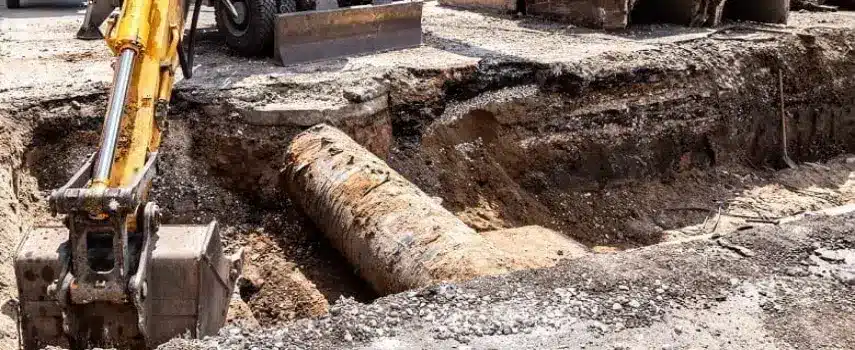Trench cave in accidents are incredibly dangerous. As we all know, some contractors resign from their original plans when ‘meeting the deadline’ is at stake. A new plan, established in the spur of the moment, does not always meet the safety requirements. As a result, this can expose workers to a significant risk of construction accidents.
A Trench Cave in
In a recent trench cave in accident, a sprinkler system installer sustained an injury. The thirty-year-old worked for a subcontractor on a residential construction project. He sustained an injury while excavating a trench in the backyard of the residence. A stone retaining wall, adjacent to the trench, collapsed and injured the man’s left ankle and foot. As a result, he sustained a trimalleolar ankle fracture. The injured man sued the company supervising the project to recover damages for the sustained injury.
At trial, the jury found that the supervising defendant served as the general contractor on the site. The defendant selected the subcontractors, coordinated the work, and had the authority to direct and supervise all workers. The defendant also supervised the injured man. Additionally, the jury found the defendant (the general contractor) liable for the injuries of the construction worker. The general contractor failed to construct the wall in accordance to the original specifications. The general contractor also failed to provide reasonable and adequate protection and safety to the injured man. This failure was a substantial factor in causing the trench cave in accident.
The Jury’s Award

The jury awarded the plaintiff (construction worker) $2,640,000 for medical expenses, pain, and suffering.
The general contractor did not agree with the jury’s verdict and asked the judge to set it aside. The judge denied the general contractor’s motion. The judge explained that the defendant had originally submitted a plan to have the retaining wall constructed with mortar.
Instead, the defendant had then directed to build a dry stack wall. According to the testimony of plaintiff’s expert witness, the dry stack wall was not as stable as the wall called for in the original approved plans. The way the workers built the wall made it less stable than the way it was originally designed causing the trench cave in accident.
The plaintiff’s expert testified that, in his opinion, the wall would not have collapsed if the trench being dug next to it had been built according to the original plan. The Judge clearly stated that the defendant was involved in digging the property near the wall and failed to provide reasonable and adequate protection and safety to the plaintiff. Attorneys representing the general contractor did not give up and appealed the Judge’s decision.
The Appeal
The Appellate Judges of the Second Department (which hears appeals from the courts in Kings and Queens Counties) upheld the trial judge’s decision. They reasoned that the jury had a rational basis to reach such verdict and the Court can set aside a jury verdict only in special circumstances. The Appellate Court rejected the defendants’ allegations that plaintiff’s witnesses lied. The courts generally defer to juries to weigh the credibility of witnesses. The jury hears the witnesses testify and are in the best position to decide issues of fact. Additionally, the Second Department held that the award for future medical expenses should be slightly reduced as the original sum was speculative. Accordingly, the Second Department upheld the verdict in the total amount of $2,600,000.
Our attorneys not only zealously litigate but also successfully appeal personal injury cases. Construction accident cases often involve complex legal issues. You need a law firm with the ability not only to impress a jury, but to also to convince the state’s best legal minds on the appellate courts. At The Platta Law Firm, we never shy away from an appellate fight. In 2011, our firm took the case, Wilinski v. 334 East 92nd Housing Development Fund Corp., all the way to New York State’s highest court, the Court of Appeals. Our successful appeal set not only a new legal precedent but expanded protections for construction workers across New York State. If you are involved in a trench cave in accident, contact our lawyers at The Platta Law Firm for a free consultation.


